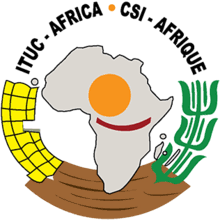The 2025 Global Rights Index, published by the International Trade Union Confederation (ITUC), paints a stark and alarming picture of the state of workers’ rights worldwide. The report reveals a pervasive erosion of labor protections, driven by a confluence of factors including the rise of authoritarianism, ongoing conflicts, and the undue influence of corporations. This decline is evident across the globe, with Europe and the Americas experiencing their worst performance since the Index’s inception in 2014. The report serves as a stark warning, projecting that if current trends persist, no country will achieve the highest rating for respecting workers’ rights within the next decade. This represents a drastic deterioration from the situation a decade ago, highlighting the urgency of addressing these concerning developments.
The ITUC’s findings reveal a systematic dismantling of fundamental labor rights. A staggering 75% of countries deny workers the right to form or join trade unions, effectively stifling collective bargaining and representation. Furthermore, 74% of countries obstruct the registration of unions, creating significant barriers to their operation and advocacy. This suppression of union activity is compounded by restrictions on freedom of speech and assembly in 45% of countries, effectively silencing workers’ voices and limiting their ability to advocate for their rights. The report also documents widespread instances of arrests, detentions, and violence against workers, with 71 countries recording arrests and detentions and 40 reporting incidents of violence. These findings point to a growing climate of repression and intolerance towards worker organizing and activism.
The Index, which evaluates 151 countries based on 97 indicators derived from International Labour Organisation (ILO) standards, reveals a disturbing trend of governments increasingly disregarding international labor norms. Twelve countries, including Afghanistan, Libya, Myanmar, Somalia, and Yemen, have received the lowest possible rating of 5+, indicating a complete breakdown of the rule of law and the collapse of state protections for workers. In these nations, workers face extreme repression, insecurity, and a total absence of legal recourse. The ITUC attributes this decline to a betrayal of the post-World War II system founded on principles of democracy, justice, and trade union rights. The report underscores the urgent need to reaffirm and strengthen these foundational principles to protect workers’ rights and ensure decent work conditions.
While the overall trend is deeply concerning, the report does highlight some positive developments. Australia improved its rating to 2, while both Mexico and Oman moved up to 3, demonstrating that progress is possible. However, these improvements are overshadowed by the widespread regression observed in most countries. Seven countries, including Italy, Argentina, Costa Rica, Panama, Georgia, Niger, and Mauritania, slipped to lower categories, indicating a deterioration of workers’ rights in these nations. This underscores the need for sustained global efforts to protect and advance labor rights, as progress in some areas is being offset by setbacks in others.
The ITUC is leveraging the ongoing International Labour Conference in Geneva to advocate for stronger enforcement of international labor standards. Their agenda includes pushing for the formalization of informal work, enhanced protections for workers in the platform economy, and the implementation of global measures to address biological hazards in the workplace. The violations documented in the 2025 Index are expected to inform discussions within the conference’s Committee on the Application of Standards, providing concrete examples of the challenges facing workers globally. The ITUC’s call for action emphasizes the need for a fundamental shift in economic policies, moving away from a focus on corporate interests towards prioritizing the well-being of people.
The ITUC’s General Secretary, Luc Triangle, has issued a strong call to action, urging for the rebuilding of economies that prioritize people over corporations. He stressed the crucial role of strong, independent unions and accountable international institutions in protecting workers’ rights and ensuring decent work for all. Triangle’s call to action reflects the determination of the global labor movement to fight for a better future for workers worldwide. He expressed the hope that the next year’s index will reflect real progress, emphasizing that the time for action is now. The 2025 Global Rights Index serves as a wake-up call, highlighting the urgent need for coordinated global action to reverse the alarming trend of declining workers’ rights and build a more just and equitable future of work.














